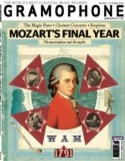Texte paru dans: / Appeared in:
*

GRAMOPHONE (10 /2013)
Pour s'abonner /
Subscription information
Glossa
GCD 922802

8424562228023 (ID348)

Reviewer: David Vickers
New vocal group
... opens the first by Marenzio
Marenzio’s Primo
libro di madrigali (1580) was dedicated to his employer Cardinal Luigi
d’Este, the owner of his late uncle’s famous villa at Tivoli (subsequent books
were dedicated to the cardinal’s Ferrarese relations, who were patrons of the
poet Tasso; Marenzio also had connections to the Gonzagas in Mantua and the
Medici in Florence). Time and again as I listened, my jaw dropped at both the
quality of Marenzio’s cleverly varied five-voice music and the astonishing
sonorities of La Compagnia del Madrigale’s beguiling performances: the
melancholic erotic yearning of ‘Tirsi morir volea’ (a poem from Guarini’s Il
pastor fido), the exquisite dissonances illustrating lost love in ‘Dolorosi
martir, fieri tormenti’, the canonic imagery of a blissful dream gradually
fading into consciousness in ‘Venuta era Madonna al mio languire’ and the
polychoral echo effects in the concluding eight-voice dialogue ‘O tu che fra le
selve occulti vivi’ all reveal why Dowland tried in vain to visit Rome so he
could study with Marenzio. Appended bonus items include the Sestina ‘Mentre ti
fui sì grato’, a cluster of madrigals created in 1582 by a collective of six
composers called the ‘Musici di Roma’ (Marenzio, Nanino, Moscaglia, de Macque,
Soriano and Zoilo), and a scholarly completion of Marenzio’s first-known
composition (the partially preserved ‘Donna bella e crudel’). Hopefully these
spectacularly gorgeous inaugural albums for Glossa will be followed by more
explorations of this engrossing quality.
Fermer la fenêtre/Close window
Cliquez l'un ou l'autre
bouton pour découvrir bien d'autres critiques de CD
Click either button for many other reviews


